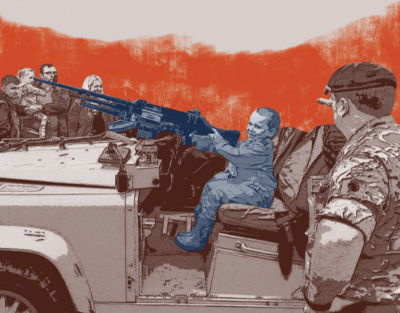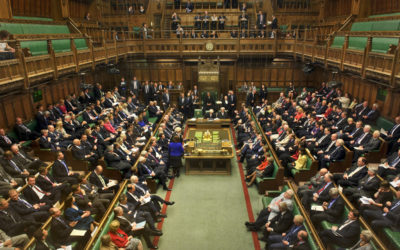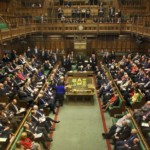Service Schools and more cadet forces – an exercise in recruitment
ForcesWatch comment
Over the past month, amid announcements of major cuts to the armed forces, came some unexpected news on public spending: £10.85million to expand cadet forces into state schools, a £1million grant to promote a military ethos in schools and senior Labour politicians calling for a series of ‘Service Schools’, staffed entirely by former members of the armed forces, to be established. Unexpected, that is, to anyone who hasn’t previously been aware of the importance that military policy makers place on access to young people within education.
The money, which comes in addition to the £155m of public money already spent each year on the cadets (Youth Engagement Review, MoD, 2011), is to promote cadet forces in state schools (where less than a quarter of existing units are based) – either by partnering with existing units, or creating new ones. The rationale behind doing so is not as clear cut as politicians such as Stephen Twigg and Jim Murphy would have us believe.
‘Rescuing the Young’….
The idea of ‘Service Schools’, founded on the ‘ethos and values of the Services’, has its background in a recent ResPublica report on establishing Military Academies and promoting a greater armed forces presence in the education sector. Post-riots, the idea of more discipline in schools, and soldiers as those best positioned to undertake this task, has become increasingly popular. In their report, the authors cite ‘Rescuing the Young’ as a key reason for Military Academies; military run summer schools that would keep youth out of trouble during the summer months, and schools with a military ethos which promote the values the armed forces are, according to the politicians promoting these schemes, so respected for.
ResPublica’s assertion that cadet forces promote a positive social attitude and keep young people out of trouble is not unfounded – a study by Graham Moon entitled ‘The Societal Impact of Cadets’ (2010, Southampton) demonstrates that these assertions are grounded in solid evidence. However, if youth crime and a lack of out-of-school activities are the problem then why is that £11m is not being given to projects such as Futureversity (a summer university for teenagers based in East London) or the Children’s University (a national scheme promoting out of school education) both of whom have equally well respected impact assessments demonstrating the positive impact they have on their participants. The money could also be used to fund youth services that have seen severe cuts up and down the country.
…and other strategic reasons
An answer to the question of why money is being pumped into cadets instead of non-militarised youth activities lies in two other justifications that ResPublica give for Military Academies – providing opportunities for those who have left the full-time armed forces and revitalising the Reserve Forces.
It is no secret that Britain has a poor tradition of caring for its troops post-operations – the issue has been well reported in the media, and has led to a number of developments over the past few years to address the issue. By putting more money into schemes such as cadets, academies run by ex-military personnel, SkillForce and the recent grant to promote a military ethos in education, the government can provide for those who leave the military with few employment prospects. Aside from the issues surrounding the reasons for their low employment prospects (ex-armed forces personnel have significantly higher unemployment than the civilian population), it is not this issue that ForcesWatch are most concerned about here.
A significant part of ResPublica’s reasoning is concerned with ‘Revitalising the Reserve Forces’. To understand what this means, it is worth examining the way in which the recent cuts to the armed forces have been justified. Although the Territorial Army (TA) is commonly thought of as separate to the armed forces, relatively recent legislation actually bound the two together. The TA is now simply another branch of the armed forces, with military duties that can include entering into combat – several hundred TA personnel were deployed to Iraq. The commitment to the TA currently stands at 40 days per year on average, which rises if the soldier sees active service. This is much cheaper than employing full-time personnel, and so the army cuts have been justified by promising a large increase in the number of Reserve Forces.
More military presence in schools benefits the military
So it seems the reason money is not being put into well respected non-military schemes that have equally, and in many cases, more widely recognised, positive impacts on their participants, is that the armed forces would gain significantly from more cadet forces and academies run by the military. Through recruitment (to the Reserves or regular armed forces), raising public awareness and increasing ‘public goodwill’ – it is the military rather than young people who will benefit most from these partnerships.
This is also evident in various MoD documents. Although its youth report mentions that those working with cadet units are keen not to cross the cadet/recruitment boundary, it is also explicit when it states that putting such large amounts of money into the cadets is not without its recruitment benefits (up to 25% of serving military personnel had a cadet experience prior to signing up) – and that the military should recognise this opportunity. The Schools Engagement Survey published by the MoD in 2007 was equally explicit when it claimed that its primary rationale for engaging with young people within education is recruitment.
Recognising who stands to gain most from the increasing military involvement within education and the implications for young people (well documented in Informed Choice?, David Gee, 2008) is a key point that is being ignored by politicians when they ask for the ‘military to invade our schools’.
See more: cadets, legislation & policy, military in schools/colleges, recruitment, military ethos, reserves
Like what you read?
> Sign up for our newsletter or blog notifications
> Support our work – from just £2 a month









